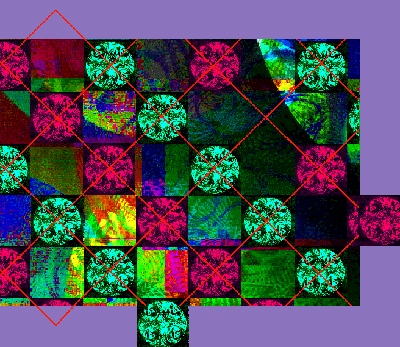|
 Jane C. Blake,
Jane C. Blake,
Managing Editor
Designs that capitalize on Digital's 64-bit Alpha RISC processors
or that enhance the performance of scientific applications are
the subjects of papers in this issue. Featured topics include the
well-received AlphaServer multiprocessing systems, the DEC OSF/1
symmetric multiprocessing operating system, a high-performance
math library, and a preprocessor program developed by Kuck &
Associates, Inc.
To develop a price/performance leader for the server market,
designers of the AlphaServer 2100 and 2000 multiprocessing
systems had to make decisions that were at once creative,
pragmatic, and timely. Fidelma Hayes, an engineering manager for
the Server Group, presents an overview of these high-performance
servers that incorporate Alpha RISC technology and PC-style I/O
subsystems, and support three operating systems -- Microsoft's
Windows NT, DEC OSF/1, and OpenVMS. Because of the engineering
team's persistent focus on performance, cost, and time-to-market,
all these goals for the AlphaServer systems were surpassed.
Introducing two PC buses in the AlphaServer multiprocessing
system was an important factor in market success and an
interesting engineering challenge. Andy Russo discusses the
benefits of a dual-level I/O structure which contains both the
widely used EISA bus and the newer high-performance PCI bus that
connects to a 128-bit multiprocessing system bus. He describes
several innovative techniques that promote efficiency in the
hierarchical bus structure, the advantages offered by the
selection of bus bridges (one custom ASIC and one standard chip
set), and the I/O interrupt scheme that combines familiar
technology with custom support logic.
The next paper presents the significant software work done to
ensure high performance and reliability as CPUs are added to the
2100 and 2000 multiprocessing systems. Jeff Denham, Paula Long,
and Jim Woodward first review the foundations of DEC OSF/1
version 3.0, Digital's implementation of UNIX for the AlphaServer
multiprocessing systems. They then examine issues that arise when
moving an operating system from a uniprocessor to a shared-memory
SMP platform, in particular, the design team's efforts in
lock-based synchronization and algorithm modifications aimed at
parallelism within the operating system kernel.
The total impact of 64-bit RISC systems and operating system
support for shared memory SMP platforms is demonstrated by
meeting the demands of scientific and technical applications. A
tool for accelerating application performance on all Alpha
systems is the DXML Extended Math Library. Chandrika Kamath, Roy
Ho, and Dwight Manley briefly discuss the role of mathematical
libraries and then present an overview of DXML components, which
include both public domain BLAS and LAPACK libraries and Digital
proprietary software. Using example routines, they explain
optimization techniques that effectively exploit the memory
hierarchy and provide substantial performance improvements.
Another tool for optimizing scientific application performance is
KAP, a preprocessor to parallelize DEC Fortran and DEC C
programs. As authors Bob Kuhn, Bruce Leasure, and Sanjiv Shah
from Kuck & Associates describe it, the KAP product is a
superoptimizer, performing optimizations at the source code level
that go beyond those performed by the compilers. Their paper
reviews adaptations to KAP for SMP systems and the key design
aspects, such as data dependence analysis and the selection of
loops to parallelize from among many in a program.
The editors thank Andrei Shishov, Mid-range AlphaServers Program
Manager, for his help in developing this issue of the
Journal.
|
|